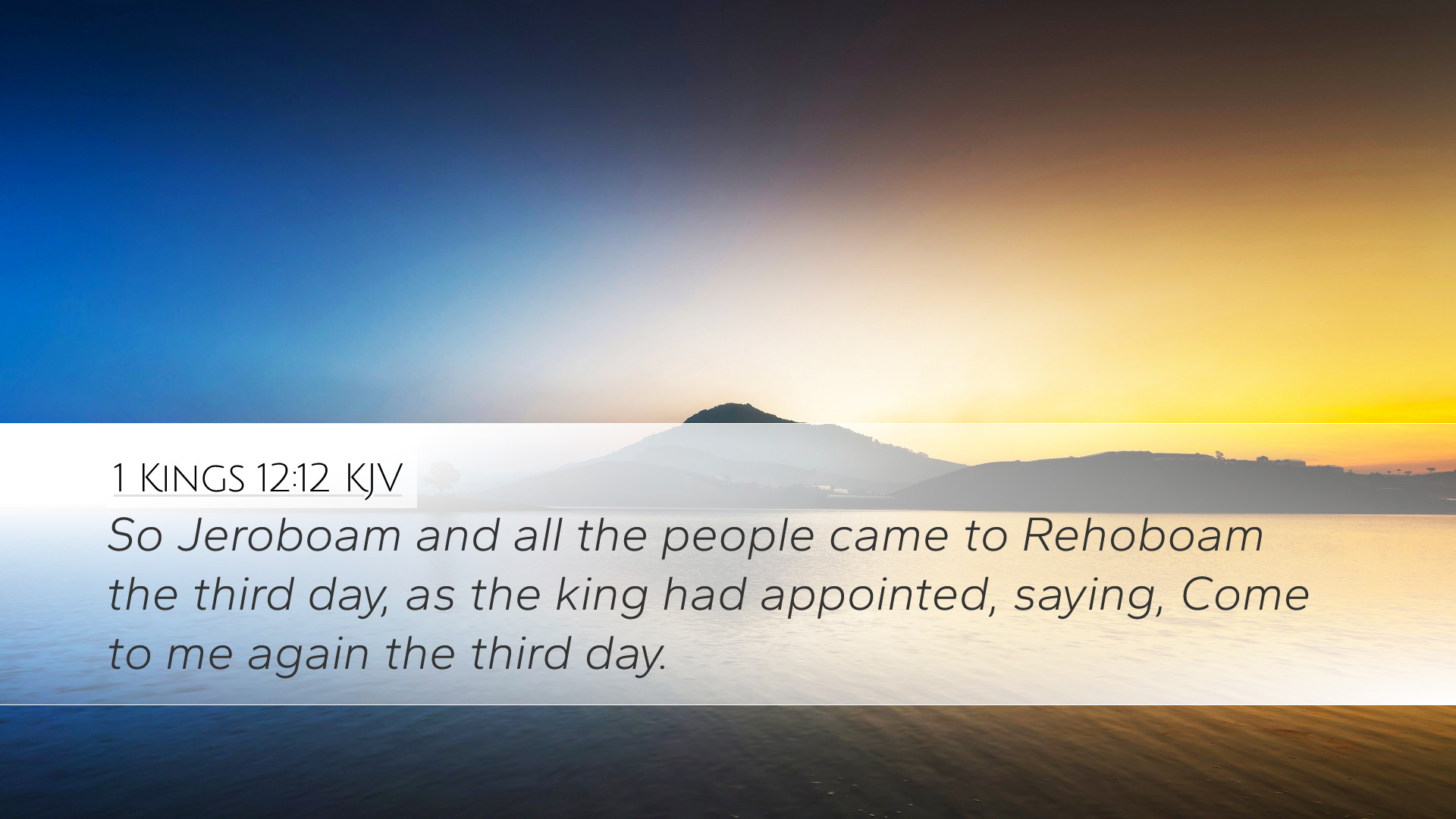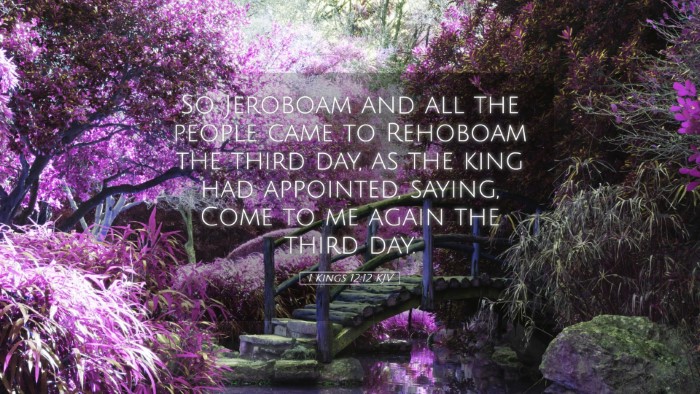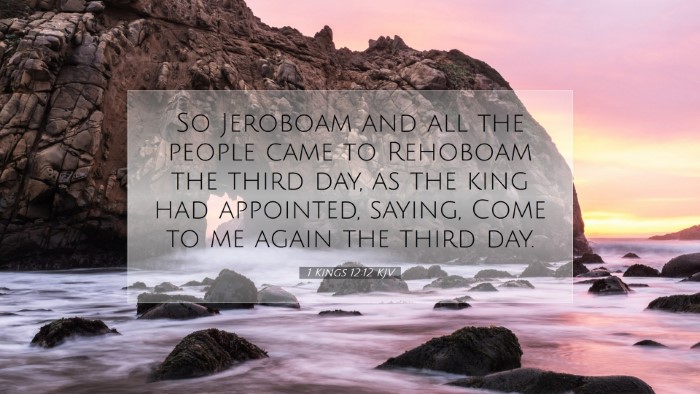Bible Commentary on 1 Kings 12:12
Verse Context: 1 Kings 12:12 reads, "So Jeroboam and all the people came to Rehoboam the third day, as the king had appointed, saying, 'Come again to me on the third day.'" This verse is crucial in the narrative of the divided kingdom of Israel, marking a pivotal moment in the struggle for leadership and authority.
Introduction
This passage serves as a significant turning point, as it outlines the events leading up to the division of the unified Israelite monarchy. The careful deliberation by King Rehoboam and the reactions of the people reflect deeper theological and social issues present in the text.
Historical Background
The backdrop of this scripture includes the reign of King Solomon, who reigned in great wisdom but also imposed heavy burdens on his people. As Solomon’s reign ended, discontent began to brew among the Israelites, ultimately leading them to seek relief from King Rehoboam.
Jeroboam’s Role
Jeroboam, who had previously fled to Egypt due to tensions with Solomon, returns as a significant figure representing the people's demands. His insistence that Rehoboam lighten the oppressive labor and tax load set the stage for the upcoming conflict.
Commentary Insights
Insights from Matthew Henry
Matthew Henry emphasizes the importance of the timing and response in this critical moment. He notes that Rehoboam's decision to delay answering the people showcases a lack of immediate wisdom and sensitivity to the needs of his subjects. Henry interprets Rehoboam's actions as reflective of a common human tendency to ignore the cries of the burdened until forced to respond.
Insights from Albert Barnes
Albert Barnes focuses on the request of the people for a lighter yoke. He points out that the people's appeal indicates a yearning for justice and fairness from their leaders. Barnes highlights that this moment is more than political; it implies a spiritual dimension where the people's relationship with God is tested through their earthly rulers.
Insights from Adam Clarke
Adam Clarke provides a detailed breakdown of the socio-political implications of the verse. He suggests that the return of Jeroboam and the collective plea of the people indicate a significant shift in Israel’s governance. Clarke argues that the people's decision to confront Rehoboam reflects their desire for autonomy and better treatment, still underlining the necessity for godly leadership.
Theological Reflections
This passage can be approached from various theological angles:
- Leadership and Responsibility: The expectation of leaders to listen to their followers' concerns is paramount in this verse. Rehoboam's eventual response—or lack thereof—becomes a case study in the qualities necessary for godly leadership.
- Human Rebellion and Divine Sovereignty: The narrative encapsulates the tension between human decisions and divine ordination. God’s plan unfolds even as human leaders make choices that lead to division.
- Moral Integrity in Decision-Making: Leaders are called to consider the well-being of their people, showcasing the essence of moral integrity in their decisions.
Practical Applications
This scripture serves as a reminder for modern-day leaders—be they in church, government, or any organization—of the grave importance of engaging with their constituents and the dire consequences of neglecting to do so.
- Listening Skills: Rehoboam’s initial silence can be a warning against the failure to listen to the cries for justice.
- Seeking Wisdom: Before making critical decisions, consultation with wise counsel and prayer is essential.
- Understanding Authority: Reflecting on the source of authority and the responsibility that comes with it can lead to more compassionate governance.
Conclusion
The events surrounding 1 Kings 12:12 not only tell a historical narrative but also provide timeless lessons on leadership, community, critical engagement, and moral integrity. As we delve into this scripture, may we seek to honor God in our leadership and be responsive to the needs of those we govern.


